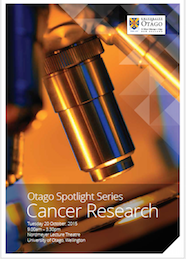2016 Otago Spotlight Series: CVD videos available
A big thank you to our organisers, presenters, and all those who joined us in Wellington for our CVD forum on Tuesday, 20 September.
The filmed the presentations are now available:
Otago Spotlight Series: CVD video album
We also have most of the presentation slides available as PDFs:
Presenters and presentation slides
Student CVD poster competition
Finalists presented their research as part of the CVD forum. The judges awarded one winner, and four highly commended posters, from the 11 competitors.
First prize
Hot-water immersion increases leg perfusion in peripheral arterial disease
Kate Thomas1,2, Andre van Rij1, James Cotter2
1 Department of Surgical Sciences, Dunedin School of Medicine
2 School of Physical Education, Sport and Exercise Sciences, University of Otago
Highly Commended
Recycling apolipoprotein(a) after PlgRKT-mediated endocytosis of lipoprotein(a)
Monika Sharma1, Greg Reidpath1, Michael Williams2, Sally McCormick1
1 Department of Biochemistry, Otago School of Medical Sciences, University of Otago
2 Department of Medicine, Dunedin School of Medicine, University of Otago
Does autonomic dysregulation reduce cardiac reserve in type 2 diabetes?
Genevieve Wilson1, Luke Wilson1, Regis Lamberts2, Kamran Majeed3, Sudish Lal1, Gerard Wilkins1, James Baldi1
1 Department of Medicine, Dunedin School of Medicine, University of Otago
2 Department of Physiology, Otago School of Medical Sciences, University of Otago
3 Royal Adelaide Hospital, Adelaide, Australia
CaMII inhibition restores contractile performance in cardiac muscle from a rat model of type 2 diabetes
Lorna Daniels, Regis Lamberts, Fiona McDonald, Jeff Erickson
Department of Physiology, Otago School of Medical Sciences, and Heart Otago, University of Otago
Antihypertensive medicines utilisation: A decade-long nationwide study of octogenerians, nonagenerians and centenarians
Sujita Narayan, Prasad Nishtala
Research in Pharmacoepidemiology (RiPE) Group, School of Pharmacy, University of Otago
This particular prize is sponsored by the Otago Medical School Research Society.
A full list of competing posters is available in our programme:
Download our CVD programme (PDF 230 KB)
CVD presenters
Many of our presenters have now shared their presentation slides below.
A video album of the presentations is now available:
Otago Spotlight Series: CVD video album
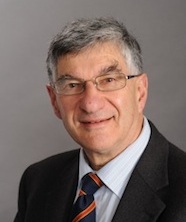 Professor Jim Mann
Professor Jim Mann
Topic: Overview, and nutrition research
Professor Jim Mann (CNZM) is a world leader in human nutrition, diabetes and obesity. He has been Professor in Human Nutrition and Medicine at the University of Otago and Consultant Physician (Endocrinology) in Dunedin Hospital for 25 years. He is Director of the Healthier Lives National Science Challenge, the WHO Collaborating Centre for Human Nutrition, Edgar Diabetes and Obesity Research, and Principal Investigator for the Riddet Institute, a national Centre of Research Excellence.
Professor Mann has been involved in guideline development for numerous international and national organisations concerned with nutrition, diabetes and cardiovascular disease, several of which he has chaired or continues to chair. He has authored over 300 peer reviewed journal articles and written and edited several textbooks and popular books, including The Essentials of Human Nutrition.
- Presentation slides: Cardiovascular disease in perspective: Historical aspects, nutrition and risk reduction (PDF 21 MB)
- Healthier Lives National Science Challenge
- Edgar Diabetes and Obesity Research
Professor Mark Richards
Topic: Improving diagnostic, prognostic and therapeutic biomarkers in heart disease
 Professor Mark Richards is the director of the Christchurch Heart Institute.
Professor Mark Richards is the director of the Christchurch Heart Institute.
He coordinates and directs multi-disciplinary programmes of grant-funded translational cardiovascular research which seek to improve diagnostic, prognostic and therapeutic options in heart disease.
He is pursuing studies of epidemiological, molecular biological, neurohormonal and therapeutic aspects of acute and chronic cardiovascular disorders including hypertension, coronary syndromes, and the full spectrum of heart failure.
Richards holds the Heart Foundation of New Zealand's Chair in Cardiovascular Studies.
He also holds joint appointments at the University of Otago and the National University of Singapore's Cardiovascular Research Institute.
- Presentation slides: Improving diagnostic, prognostic and therapeutic biomarkers in heart disease (PDF 6.4 MB)
- Christchurch Heart Institute
Professor Tony Blakely
Topic: Modelling the impact of tobacco control interventions
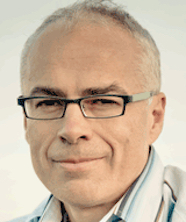 Professor Tony Blakely is an epidemiologist at the University of Otago, Wellington. His research career includes initiating the New Zealand Census-Mortality Study in the late 1990s, a pioneering study linking the national censuses with mortality data to allow research on ethnic and socio-economic inequalities and the contribution of smoking to mortality. He has also led the parallel study, CancerTrends.
Professor Tony Blakely is an epidemiologist at the University of Otago, Wellington. His research career includes initiating the New Zealand Census-Mortality Study in the late 1990s, a pioneering study linking the national censuses with mortality data to allow research on ethnic and socio-economic inequalities and the contribution of smoking to mortality. He has also led the parallel study, CancerTrends.
Professor Blakely is also a member of the Healthier Lives Science Leadership Team and leads the project Virtual Health Information Network: Capitalising on New Zealand's health data.
Professor Blakely directed the Health Inequalities Research Programme from 2004, which encompassed the SoFIE-Health study, a series of neighbourhoods and health research projects, and cancer survival studies. He currently directs the HRC-funded Burden of Disease Epidemiology, Equity and Cost Effectiveness programme. He has research interests in nutrition and health services. Cutting across all his research is a strong focus on epidemiological and quantitative research methodologies. He has published approximately 200 peer reviewed journal articles.
- Presentation slides: Modelling tobacco control interventions (PDF 4.5 MB)
- Healthier Lives National Science Challenge
- Burden of Disease Epidemiology, Equity and Cost-Effectiveness programme (BODE3)
Professor Vicky Cameron with Dr Allamanda Faatoese
Topic: Understanding cardiovascular risk in Māori and Pacific peoples
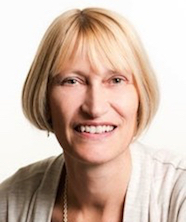 Professor Vicky Cameron Research Professor Vicky Cameron is head of Molecular Biology and Genetics within the Christchurch Heart Institute at the University of Otago. Her research interest is the interplay of genes and environment on the risk of heart disease for New Zealand families / whanau. She is Lead Investigator on several cohort studies, including The Healthy Volunteers Cohort and the Christchurch Family Heart Study and is Co-leader on the Hauora Manawa / Community Heart Study investigating cardiovascular risk factors in Māori communities.
Professor Vicky Cameron Research Professor Vicky Cameron is head of Molecular Biology and Genetics within the Christchurch Heart Institute at the University of Otago. Her research interest is the interplay of genes and environment on the risk of heart disease for New Zealand families / whanau. She is Lead Investigator on several cohort studies, including The Healthy Volunteers Cohort and the Christchurch Family Heart Study and is Co-leader on the Hauora Manawa / Community Heart Study investigating cardiovascular risk factors in Māori communities.
Professor Cameron is also a member of the Science Leadership Team for the Healthier Lives National Science Challenge. She is principal investigator for Equitable cardiovascular and diabetes risk prediction: Better cardiovascular and diabetes outcomes in Māori, Pacific, and Indian subcontinent ethnic groups.
Professor Cameron served on the Heart Foundation Scientific Advisory Board for seven years and is currently Convenor of the Marsden Biomedical Science Panel. She is an International Fellow of the American Heart Association and a member of the University of Otago Council.
- Presentation slides: Understanding cardiovascular risk in Māori and Pacific peoples (PDF 12 MB)
- Co-presenter Dr Allamanda Faatoese's bio
- Healthier Lives National Science Challenge
- Christchurch Heart Institute
Professor Andre van Rij
Topic: Aortic aneurysm screening
 Professor Andre van Rij is a vascular surgeon in the Dunedin School of Medicine's Department of Surgical Sciences.
Professor Andre van Rij is a vascular surgeon in the Dunedin School of Medicine's Department of Surgical Sciences.
Along with Associate Professor Greg Jones he leads the Vascular Research Group which conducts a wide range of research in the fields of vascular biology, genetics, and physiology.This multidisciplinary group has a wide range of basic science and clinical skills, including molecular biology (genomics, transcriptomics, and proteomics), immunohistopathology, cell culture, and vascular physiology (ultrasonography).
Primary research interests include:
- The genetic basis of different forms of vascular disease including abdominal aortic aneurysm, coronary artery disease, lower limb arterial disease, stroke, and varicose veins
- Determining the early processes in the formation of atherosclerosis (arterial disease)
- Identifying circulating markers of vascular susceptibility and/or post-interventional outcome
- Determining the pathophysiology of venous disease
The Vascular Research Group is a leading member of the Vascular Research Consortium of New Zealand, which aims to support collaborative vascular networks nationally.
- Presentation slides: Aortic Aneurysm (PDF 9.5 MB)
- Vascular Research Group
- Vascular Research Consortium of New Zealand
Professor Nick Wilson with Dr Nisha Nair
Topic: Sodium reduction and aortic aneurysm screening interventions—what might the health impact be?
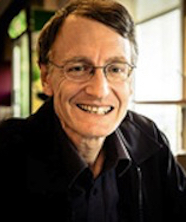 Professor Nick Wilson trained as a medical doctor and subsequently specialised as a public health physician. He has over 270 Medline-indexed publications in peer-reviewed journals.
Professor Nick Wilson trained as a medical doctor and subsequently specialised as a public health physician. He has over 270 Medline-indexed publications in peer-reviewed journals.
His research interests include:
- The health economics of primary prevention (BODE³ Programme)
- Tobacco use epidemiology and control (ITC Survey)
- Infectious disease control (particularly pandemic influenza but also other infectious diseases)
- Climate change and air pollution
- Disarmament and peace and conflict studies
- Public Health and New Zealand history
- Use of movies and novels for teaching public health themes
More about Nick's research:
- Presentation slides: Modelling dietary sodium reductions, and abdominal aortic aneurysm screening (PDF 7 MB)
- Co-presenter Dr Nisha Nair's bio
- Burden of Disease Epidemiology, Equity and Cost-Effectiveness programme (BODE3)
- International Tobacco Control Policy Evaluation Survey
Professor Sally McCormick
Topic: Lipoproteins in heart disease
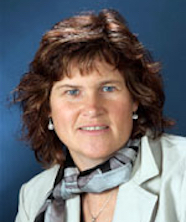 Professor Sally McCormick's laboratory studies the genetics, proteomics and biochemistry of molecules involved in heart disease.
Professor Sally McCormick's laboratory studies the genetics, proteomics and biochemistry of molecules involved in heart disease.
A major class of molecule involved in heart disease are the plasma lipoproteins. The lab has a broad research programme that involves the purification, measurement and quantitative proteomics of plasma lipoproteins from clinical samples as well as the investigation of novel compounds that alter lipoprotein levels using mouse models. We also investigate the genetics of plasma lipoproteins in families with various dyslipidaemias.
Associate Professor Shieak Tzeng
Topic: Translating waveforms and protons into acute stroke management
 Associate Professor Shieak Tzeng is a clinically trained physiologist with special interests in neuroprotection in acute brain injury, computational modelling of cerebrovascular function, and development of neuro-monitoring technologies. In these fields his research programme employs a diverse range of imaging, electrophysiological, and signal processing approaches spanning from the bench (basic laboratory studies in human and animal models) to bedside (clinical trials).
Associate Professor Shieak Tzeng is a clinically trained physiologist with special interests in neuroprotection in acute brain injury, computational modelling of cerebrovascular function, and development of neuro-monitoring technologies. In these fields his research programme employs a diverse range of imaging, electrophysiological, and signal processing approaches spanning from the bench (basic laboratory studies in human and animal models) to bedside (clinical trials).
Associate professor Tzeng has strong collaborations with bioengineers designing computer algorithms for extracting diagnostic information from point-of-care technologies, and developing physiological monitoring devices for neurocritical care based on nuclear magnetic resonance.
Dr Allamanda Faatoese with Professor Vicky Cameron
Topic: Understanding cardiovascular risk in Māori and Pacific peoples
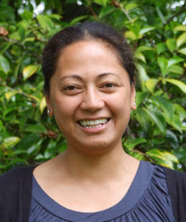 Dr Allamanda Faatoese joined the Christchurch Heart Institute as a research assistant for the Hauora Manawa / Community Heart Study and then undertook her doctoral studies that focused on cardiovascular risk profiles of Maori and non-Maori communities. This research continues to explore the potential of novel biomarkers to stratify cardiovascular risk among Maori who bear a greater burden of cardiovascular morbidity and mortality.
Dr Allamanda Faatoese joined the Christchurch Heart Institute as a research assistant for the Hauora Manawa / Community Heart Study and then undertook her doctoral studies that focused on cardiovascular risk profiles of Maori and non-Maori communities. This research continues to explore the potential of novel biomarkers to stratify cardiovascular risk among Maori who bear a greater burden of cardiovascular morbidity and mortality.
Dr Faatoese was awarded the 2014 HRC Pacific Postdoctoral Fellowship which supports her current interests in novel lipoprotein biomarkers and their associations with cardiovascular risk among Maori and non-Maori communities.
- Presentation slides: Understanding cardiovascular risk in Māori and Pacific peoples (PDF 12 MB)
- Christchurch Heart Institute
Dr Pete Jones
Topic: Understanding Arrhythmias
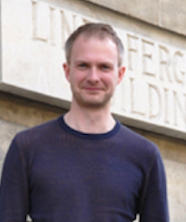 Dr Pete Jones explores how calcium cycling is controlled in cardiac myocytes. His focus is on the mechanisms by which calcium release from intra-cellular stores (sarcoplasmic reticulum, SR) is controlled by the cardiac ryanodine receptor (RyR2). The aim of this research is to characterize how the activity of RyR2 is altered both physiologically and in disease. This is achieved using a broad spectrum of assays from molecular biology and single channel recordings, through to isolated cardiac myocytes and ultimately whole animal models.
Dr Pete Jones explores how calcium cycling is controlled in cardiac myocytes. His focus is on the mechanisms by which calcium release from intra-cellular stores (sarcoplasmic reticulum, SR) is controlled by the cardiac ryanodine receptor (RyR2). The aim of this research is to characterize how the activity of RyR2 is altered both physiologically and in disease. This is achieved using a broad spectrum of assays from molecular biology and single channel recordings, through to isolated cardiac myocytes and ultimately whole animal models.
Dr Rachael McLean
Topic: Dietary salt and cardiovascular disease: evidence to policy
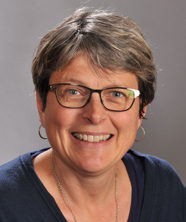 Dr Rachael McLean is a public health physician with an interest in nutrition.
Dr Rachael McLean is a public health physician with an interest in nutrition.
She is interested in the relationship between food, nutrition and chronic disease, particularly obesity, diabetes and cardiovascular disease. Rachael collaborates with Edgar Diabetes and Obesity Research to investigate how public health approaches can reduce obesity and improve health outcomes for those with type 2 diabetes.
Current research interests include monitoring population dietary sodium intake, public health approaches to dietary sodium reduction, and the relationship between dietary sodium and cardiovascular disease.
- Presentation slides: Dietary salt and cardiovascular disease: Evidence to policy (PDF 10.5 MB)
- Edgar Diabetes and Obesity Research
Dr Nisha Nair with Professor Nick Wilson
Topic: Sodium reduction and aortic aneurysm screening interventions—what might the health impact be?
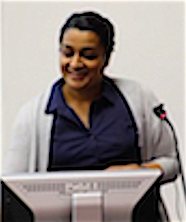 Dr Nisha Nair is a Public Health Medicine Specialist and Senior Research Fellow on the Burden of Disease Epidemiology, Equity and Cost-Effectiveness Programme (BODE3). Her role in BODE3 centers on conceptualising health interventions for modelling, stakeholder engagement, and knowledge translation.
Dr Nisha Nair is a Public Health Medicine Specialist and Senior Research Fellow on the Burden of Disease Epidemiology, Equity and Cost-Effectiveness Programme (BODE3). Her role in BODE3 centers on conceptualising health interventions for modelling, stakeholder engagement, and knowledge translation.
Before joining the University of Otago, Wellington in 2013, she worked in health policy at the Ministry of Health and at Hutt Valley DHB. She has also managed a HIV research project in Malaysia. She is particularly interested in translating complex academic research in order to make it available, accessible, interesting, and useful to a wider audience.
- Presentation slides: Modelling dietary sodium reductions, and abdominal aortic aneurysm screening (PDF 7 MB)
- Burden of Disease Epidemiology, Equity and Cost-Effectiveness programme (BODE3)
Dr Anna Pilbrow
Topic: Discovering new risk markers for heart disease in 'junk DNA'
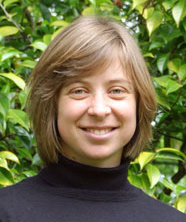 Dr Anna Pilbrow's research explores how genetic variation contributes to susceptibility to heart disease. Her research investigates genes and proteins within the heart and blood vessels that are altered in people genetically predisposed to heart disease and aims to identify new biomarkers that will help identify people at risk of having a heart attack.
Dr Anna Pilbrow's research explores how genetic variation contributes to susceptibility to heart disease. Her research investigates genes and proteins within the heart and blood vessels that are altered in people genetically predisposed to heart disease and aims to identify new biomarkers that will help identify people at risk of having a heart attack.
She is also working to identify genetic variants that increase the risk of heart disease in New Zealand families who have a strong family history of premature heart disease.
- Presentation slides: Discovering new risk markers for heart disease in 'junk DNA' (PDF 13 MB)
- Christchurch Heart Institute
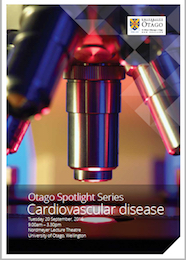
Download our CVD programme (PDF 230KB)
Cardiovascular Disease at Otago
Check out our new CVD research website:
Previous events
2015 OSS: Cancer Research
- Download the 2015 Otago Spotlight Series Cancer Research programme (PDF 230KB)
- otago.ac.nz/cancer-research website
2014 Research Forum

Learning Different Research Languages was the theme in 2014.

